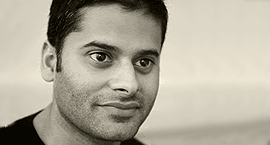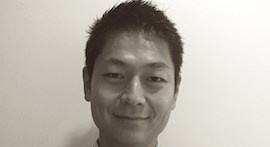
Simple Education essential guides Advances in Co-registration, Coronary Physiology & Intra Coronary Imaging is the premier international course focusing on intracoronary co-registration run by a leading and world renowned international faculty. This is the first course specialising in coronary co-registration, and builds on the 7 years of courses which have been run and quickly established as the leading global interventional course in state-of-the-art coronary physiology and intracoronary imaging. This course provides all you need to know to understand coronary physiology from learning the background basics of coronary physiology and imaging to understanding the clinical trial data and implementation of co-registration in the catheter laboratory. The course is centred around live case demonstrations, case examples, and break out sessions to ensure that you can integrate new knowledge into your clinical practice.
An online teaching resource, the Simple Education application, will give you access to video content from the days' talks, and a raft of other online educational and learning resources which continue your learning experience and connect you with the interventional community after the course finishes.
Dr Justin Davies is a consultant interventional cardiologist at Hammersmith Hospital, Imperial College NHS Trust, London. After training at Imperial College, he won a prestigious BHF research fellowship to study arterial haemodynamics. Since then he has continued to work on the development of mathematical algorithms to aid understanding of large artery physiology and to develop new tools to assess arterial disease. The holder of several patents, he has published widely in the field of hypertension, coronary and large artery physiology and is the winner of many national and international awards. He has several international collaborations, and is the developer of iFR and the co-principal investigator of the ADVISE studies, the DEFINE-FLAIR, ORBITA and DEFINE-PCI studies. Justin also has an interest in renal denervation, and has lead the first-in-man studies to evaluate the safety of this technique to patients with chronic systolic heart failure (REACH studies).
Prof Carlo Di Mario is currently Professor of Cardiology, University of Florence and Director of the Structural Interventional Cardiology Division of the University Hospital Careggi, Florence, Italy. Previous posts included 15 years as Professor of Clinical Cardiology at Imperial College of Sciences, Medicine & Technology, London and Consultant Cardiologist at the Royal Brompton Hospital. He also practiced at the San Raffaele Hospital, Milan, Italy. He trained in Cardiology at the University of Padova, Italy, but he soon moved for a more in-depth interventional trying at the Thoraxcentre of Rotterdam, the Netherlands, where he also completed a PhD in Intracoronary Ultrasound Imaging and Doppler. He maintains an active clinical involvement performing more than 200 PCI per year in the last 15 years in London with the special interest in the treatment of chronic total occlusions, bifurcations, calcified lesions and diffuse disease. He is a regular TAVI operator and certified implanter for the Medtronic Evolute R and Edwards Sapien 3 transcatheter aortic valves. He participated in more than 130 MitraClip implantations in London and in the last few months back in Italy has also started transcatheter mitral treatments with clips, valves and direct annuloplasty. Professor Di Mario pioneered the use of intracoronary Doppler, pressure measurement, ultrasound and optical coherence tomography. These techniques have become the gold standard for physiological assessment of lesion severity and have revolutionised the technique of stent implantation with the use of high pressure dilatation which led to the universal application of this method in interventional cardiology. He is now applying these intravascular techniques for the guidance of implantation of fully bioabsorbable stents and optimal stent apposition across bifurcations and in complex lesions. He has led or participated in studies and trials to improve the technical success of recanalisation of chronic total occlusion and demonstrate its clinical usefulness. He cooperated with Dr Davies to the validation of iFR to assess lesion severity and discriminate the contribution of individual lesions, and with Dr Lyon in the intracoronary delivery of SERCA-2 genes via adenoviral vectors in the CUPID2 trial. He was Principal Investigator of the CARESS in AMI trial, a large multicentre trial showing that patients who receive fibrinolytic therapy for ST-elevation myocardial infarction benefit from early angioplasty. This trial and a subsequent meta-analysis have led to a change in the European Society of Cardiology and AHA/ACC Guidelines for treatment of STEMI patients. He is the PI and main recruiter of the Disrupt-CAD study with coronary lithotripsy delivered via dedicated balloons, due to be reported at ACC March 2017.
Prof Andrew Sharp qualified from Edinburgh Medical School in 1998 and was appointed as a Consultant Cardiologist at the Royal Devon and Exeter Hospital in 2011. He was appointed Honorary Associate Professor at the University of Exeter in 2018. He conducted his early training at the Royal Infirmary of Edinburgh, before moving to London for his senior clinical training. He completed the prestigious Milan-Imperial Interventional Cardiology Fellowship programme, having spent a year in San Raffaele and Columbus Hospitals, Milan, Italy, under the tutelage of Professor Antonio Colombo. He also spent three years training in interventional cardiology at St Mary’s Hospital and The Hammersmith Hospital (Imperial College Hospitals) in London. Professor Sharp was awarded an MD postgraduate research degree from the University of Edinburgh for his work on the hypertensive heart and now leads a large research programme at the Royal Devon and Exeter Hospital. He has been Principal Investigator in more than 30 ethically-approved research trials since 2012 and has published extensively. He is regularly invited to lecture at national and international conferences in the fields of coronary artery disease, pulmonary embolism and hypertension.
Dr Rasha Al-Lamee is an Interventional Cardiology Consultant at Imperial College Healthcare NHS Trust in London, UK. Dr Al-Lamee’s research interests are complex coronary intervention, coronary physiology and invasive intravascular assessment. She designed, conducted and led the ORBITA trial and is the lead author of the primary publication in The Lancet. At Imperial College, she is actively involved in the development and recruitment for a number of multi-centre clinical trials. Dr Al-Lamee has over 40 peer-reviewed publications and has presented at international Cardiology conferences worldwide throughout her clinical career. She studied at the University of Oxford and University College London. She went onto complete her training as a junior doctor on the Barts and the London Medical rotation before being appointed as a Specialist Registrar on the North West London Cardiology rotation in 2006. Dr Al-Lamee has twelve years of Cardiology experience and completed three years of Interventional Fellowship training at Hammersmith Hospital in London. She also spent a year training as an Interventional Fellow under the supervision of Professor Antonio Colombo in Milan. She completed specialist training in Cardiology in 2013.
Prof Ravinay Bhindi is a consultant and Interventional Cardiologist on the North Shore Hospital Campus. He has expertise in complex coronary intervention and structural heart disease including percutaneous valve therapies. He is Director of the Cardiac Catheterisation Laboratory and Heads Clinical Trials and Structural Heart disease at North Shore Private and Royal North Shore Hospitals. In addition to an active clinical role, he maintains active research programs and has over 100 publications in peer reviewed journals. Professor Bhindi completed his MBBS and PhD at the University of Sydney before undertaking further interventional cardiology training and postdoctoral fellowship at the John Radcliffe hospital/ University of Oxford.
Dr Nieves Gonzalo was born in Madrid, Spain in 1976. In 2006 she got the degree of Cardiologist after her training in Clinico San Carlos University Hospital in Madrid. After finishing her specialisation she moved to Rotterdam in The Netherlands for a research fellowship in the Thoraxcenter, Erasmus University with the team of Professor Patrick Serruys. There, she worked mainly in intracoronary imaging techniques and bioabsorbable stents. In 2010 she obtained her PhD with the thesis “Optical coherence tomography for the assessment of coronary atherosclerosis and vessel response after stent implantation”. Currently she works in the Interventional Cardiology Department at Clinico San Carlos University Hospital in Madrid.
Dr Allen Jeremias, MD, MSc, is the Director of Interventional Cardiology Research and Associate Director of the Cardiac Catheterization Laboratory at St. Francis Hospital, Roslyn, NY. He is also a member of the Cardiovascular Research Foundation, New York, NY where he currently serves as the Director of the Physiology Core Laboratory. He completed his Medical training at The Cleveland Clinic Foundation, Stanford University School of Medicine, as well as Beth Israel Deaconess Medical Center, Harvard Medical School. Dr. Jeremias has numerous publications in the area of coronary physiology and intravascular imaging. |
 Dr Sukhjinder Nijjer is a Consultant Cardiologist with Dr Sukhjinder Nijjer is a Consultant Cardiologist with a specialist interest in Coronary Intervention and the treatment of coronary artery disease. He works at both Chelsea & Westminster NHS Foundation Trust and Imperial College Healthcare NHS Trust. Dr Nijjer is also an Honorary Clinical Senior Lecturer at Imperial College. He has clinical research interests in coronary physiology and the treatment of acute coronary syndromes. He has a PhD awarded by Imperial College London in coronary blood flow and the use of stenting to treat complex stenoses. Clinically, he is specialises in interventional cardiology and he is skilled in coronary intervention and the application of coronary physiology and intravascular imaging. He has expertise in anti-platelets, optical coherence tomography and CT coronary angiography. He has specific research interests in coronary artery physiology and clinical trial design, and is working at the forefront of innovation in physiological assessment for coronary disease. He has presented his PhD research at the leading cardiology conferences around the world, including the European Society of Cardiology (ESC), Transcatheter Cardiovascular Therapeutics (TCT) and EuroPCR. He has won many awards and has over 70 high impact publications. |
 Dr Sayan Sen is an internationally recognised Interventional Cardiologist based at the Hammersmith Hospital, London. His clinical expertise encompasses both general and interventional cardiology. Dr Sen’s research interests involve both first in man and larger multi-centre clinical trials. His research has been published in leading medical journals and has changed clinical practice around the world. Dr Sen leads the Imperial NHS Trust Cardiology Service for Central and West London. He routinely performs complex coronary angioplasty and TAVI. He is recognised as an expert in intra-coronary physiology and intravascular imaging and often performs live cases to International Conferences. Dr Sen's academic interests are dedicated to improving patient care. As such, they include the development and validation of new diagnostic tools, determining how study design can influence the clinical use of competing therapies and the development and application of tools that permit a more patient centred approach to therapy. One of the themes of his research is to determine which patients should be treated with stents. His PhD pioneered a new technique of stenosis evaluation (the instantaneous wave-free ratio, iFR). This index has been globally adopted by physicians to help guide how they treat patients with coronary artery disease. He currently leads a PhD program examining coronary haemodynamics in patients with valve disease. Sayan teaches regularly, he is the course director of the Advanced Coronary Physiology Course for consultant cardiologists, which has been attended by hundreds of practicing interventional cardiologists from around the world. Dr Sen qualified from University College London with Distinction. In 2009 he was awarded the MRC Research Fellowship, to study haemodynamics in coronary artery bypass grafts, native coronary arteries and in patients with severe aortic stenosis. Sayan’s academic awards include the Royal Society of Medicine Investigator of the Year Award (All Sections, 2013), the Royal Society of Medicine President's Gold Medal (Cardiology section, 2013), the prestigious Imperial College Armstrong Medal and Prize (2012), the Young Investigator Award at the British Cardiac Intervention Society Advanced Coronary Intervention meeting (2012), and the Young Investigator Prize at the Translating Coronary Physiology and Biophysics to Clinical Applications Symposium, Amsterdam (2010). Dr Sayan Sen is an internationally recognised Interventional Cardiologist based at the Hammersmith Hospital, London. His clinical expertise encompasses both general and interventional cardiology. Dr Sen’s research interests involve both first in man and larger multi-centre clinical trials. His research has been published in leading medical journals and has changed clinical practice around the world. Dr Sen leads the Imperial NHS Trust Cardiology Service for Central and West London. He routinely performs complex coronary angioplasty and TAVI. He is recognised as an expert in intra-coronary physiology and intravascular imaging and often performs live cases to International Conferences. Dr Sen's academic interests are dedicated to improving patient care. As such, they include the development and validation of new diagnostic tools, determining how study design can influence the clinical use of competing therapies and the development and application of tools that permit a more patient centred approach to therapy. One of the themes of his research is to determine which patients should be treated with stents. His PhD pioneered a new technique of stenosis evaluation (the instantaneous wave-free ratio, iFR). This index has been globally adopted by physicians to help guide how they treat patients with coronary artery disease. He currently leads a PhD program examining coronary haemodynamics in patients with valve disease. Sayan teaches regularly, he is the course director of the Advanced Coronary Physiology Course for consultant cardiologists, which has been attended by hundreds of practicing interventional cardiologists from around the world. Dr Sen qualified from University College London with Distinction. In 2009 he was awarded the MRC Research Fellowship, to study haemodynamics in coronary artery bypass grafts, native coronary arteries and in patients with severe aortic stenosis. Sayan’s academic awards include the Royal Society of Medicine Investigator of the Year Award (All Sections, 2013), the Royal Society of Medicine President's Gold Medal (Cardiology section, 2013), the prestigious Imperial College Armstrong Medal and Prize (2012), the Young Investigator Award at the British Cardiac Intervention Society Advanced Coronary Intervention meeting (2012), and the Young Investigator Prize at the Translating Coronary Physiology and Biophysics to Clinical Applications Symposium, Amsterdam (2010). |
 Dr Takayuki Warisawa is a Consultant Interventional Cardiologist and Clinical Lecturer at St. Marianna University School of Medicine in Japan. Currently, Dr Warisawa is based in London as a Clinical Research Fellow at Imperial College. After graduating with honours from the prestigious University of Tokyo, he concentrated on clinical work, especially in the field of emergency medicine and intensive care. Dr Warisawa trained as an interventional cardiologist for several years at New Tokyo Hospital, which is renowned for high-level interventional cardiology and clinical research. He had also taken the role of the Director of Emergency Medicine. While working as an expert clinician, he performed many clinical studies focused on the invasive and non-invasive coronary physiology including iFR/FFR, IMR/CFR, Scintigraphy and Perfusion CMR. Many of the studies have been published in international journals and a selection have been awarded at the Japanese scientific congress. Dr Warisawa is very focused and enthusiastic about invasive coronary physiology and is currently collaborating with Dr Justin Davies on several clinical studies. Dr Takayuki Warisawa is a Consultant Interventional Cardiologist and Clinical Lecturer at St. Marianna University School of Medicine in Japan. Currently, Dr Warisawa is based in London as a Clinical Research Fellow at Imperial College. After graduating with honours from the prestigious University of Tokyo, he concentrated on clinical work, especially in the field of emergency medicine and intensive care. Dr Warisawa trained as an interventional cardiologist for several years at New Tokyo Hospital, which is renowned for high-level interventional cardiology and clinical research. He had also taken the role of the Director of Emergency Medicine. While working as an expert clinician, he performed many clinical studies focused on the invasive and non-invasive coronary physiology including iFR/FFR, IMR/CFR, Scintigraphy and Perfusion CMR. Many of the studies have been published in international journals and a selection have been awarded at the Japanese scientific congress. Dr Warisawa is very focused and enthusiastic about invasive coronary physiology and is currently collaborating with Dr Justin Davies on several clinical studies. |

This essential guide is an educational activity intended for an international audience, specifically interventional cardiologists and cardiologists. However, other healthcare professionals involved in the care of coronary artery disease (CAD) patients will also find this topical.
This 2 day course general admission pass which covers registration, meals, and refreshments. After course free access to online course resources including powerpoint images, course videos, and links to other Simple Education resources.
Advances in Co-registration, Coronary Physiology & Intra Coronary Imaging course provides all you need to know to understand the basics of coronary physiology and imaging and what you need to do to implement both using co-registration into the cardiac catheter laboratory.